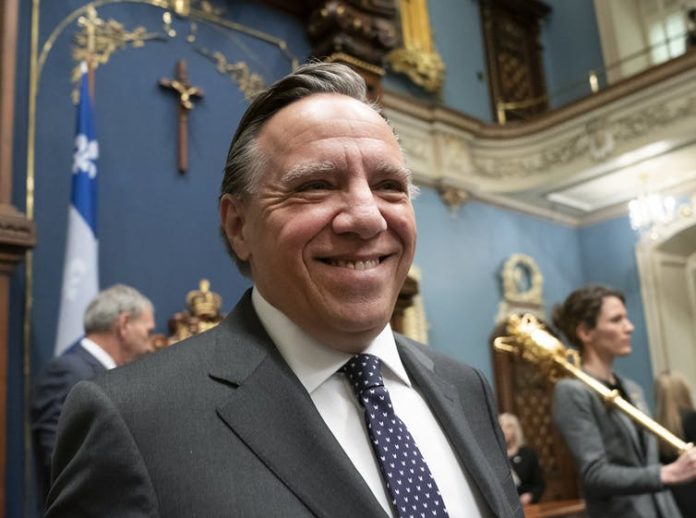
Quebec Premier François Legault says he wants all immigrants coming to the francophone province under economic immigration programs to already speak French.
In October, his Coalition Avenir Québec (CAQ) won a majority in the Quebec general election.
During that provincial election campaign, Legault made it clear he considers high levels of immigration to Quebec to pose a threat to the future of the French language in the province and the Quebecois cultural identity.
Read More Canada Immigration News
Quebeckers Want More Immigration, But Provincial Government Says No
Quebec Says It Can Only Take 50,000 Immigrants Despite Huge Rise In Canada’s Intake
Christine Frechette Takes Over From Jean Boulet As Quebec Immigration Minister
He told a business audience that raising immigration levels would be “suicidal” to the French language and insisted that Quebec must not accept substantially more than 50,000 new permanent residents annually.
Now, there’s a new twist to Legault’s views on immigration to La Belle Province.
In a speech to open the 43rd session of the National Assembly of Quebec, Legault made it clear that stopping the decline of the use of French in the province is one of his top priorities.
He sees francophone immigration as vital to achieving that goal.
By 2026, all economic immigrants to Quebec will have to be francophone under Legault’s vision.
“Previous Parti Québécois and Liberal Party governments accepted that 50 per cent (of economic immigrants to Quebec) speak French,” Legault is reported as saying in French in the Le Soleil daily newspaper.
“We have succeeded in the economic immigration categories in increasing that to 80 per cent and we must reach 100 per cent.”
Montreal Is Becoming Less Francophone As Immigration Has Increased
In the past two decades, the proportion of people who speak French on the island of Montreal has dropped from 54 per cent to 48 per cent – and that concerns the Quebec premier.
The latest data from Immigration, Refugees and Citizenship Canada (IRCC) reveals that in the first nine months of this year, economic immigration accounted for almost 65.1 per cent of total immigration to Quebec.
Through the Canadian Experience Class (CEC), Caregiver, and Skilled Worker programs as well as the Entrepreneur, Investor and Self-Employed economic programs, Quebec welcomed 34,165 new permanent residents in the first nine months of 2022.
Watch Video
Although Quebec is well on track to receive 69,987 new permanent residents this year as it makes up for the drop in immigration during the first year of the COVID-19 pandemic, both the provincial immigration minister and Legault have made it clear they will not raise the provincial immigration target much above the current 50,000.
“It is up to Quebec to set its own targets for permanent immigration,” tweeted provincial Immigration Minister Christine Fréchette in French after the provincial election.
“The upper limit for Quebec is now 50,000 (new permanent residents) due to our capacity to welcome, provide French-language services and integrate them.”
Quebec Is Already Welcoming More Immigrants Per Capita Than Either The U.S. Or France
The francophone province’s immigration minister has maintained that Quebec is already welcoming proportionately more immigrants than either the United States or France.
“Our position has remained the same: we need more control over immigration to protect the French language,” tweeted Fréchette.
In that tweet – retweeted by Legault without additional comment – the Quebec immigration minister wrote she would be continuing talks with federal Immigration Minister Sean Fraser.
In the 2023-2025 Immigration Levels Plan, Ottawa is targeting 465,000 new permanent residents in 2023, 485,000 new permanent residents in 2024 and 500,000 in 2025.
That’s a total of 1.45 million immigrants to Canada over the coming three years.
Under a provincial-federal agreement, Quebec’s annual share of new permanent residents is to be equal to its demographic clout within Canada. Since the province has 23 per cent of the country’s population, a national immigration target of 465,000 new permanent residents would mean Quebec could accept up to 106,950 new permanent residents next year.
By 2025, that number would rise to 115,000.
But Legault’s CAQ government is steadfast in its opposition to that level of immigration to the province because Quebec lacks the ability to integrate that many newcomers into the Quebecois society every year.

